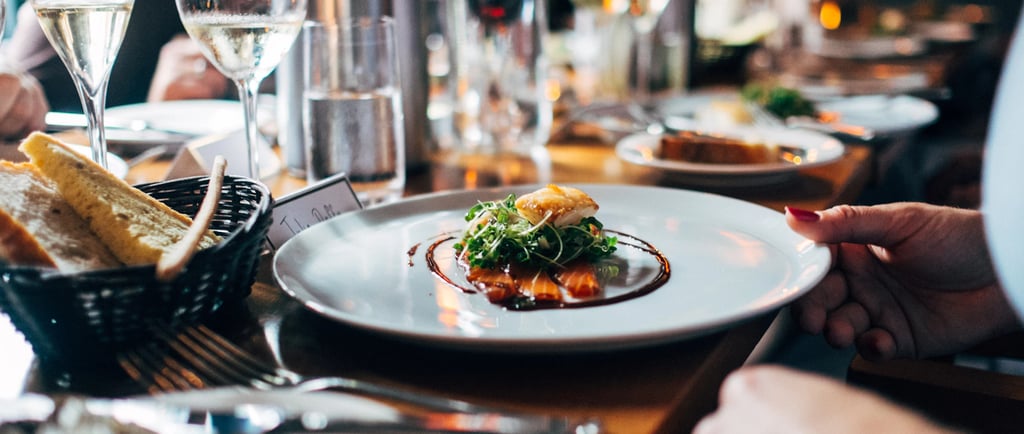How to Succeed in the Competitive Restaurant Business with a Digital Marketing Strategy
In an industry as competitive as the restaurant business, having a strong digital marketing strategy can make all the difference between success and obscurity. In today's digital age, customers increasingly rely on the internet to discover new restaurants, read reviews, and make dining decisions. By leveraging the power of digital marketing, restaurant owners can attract more customers, increase brand visibility, and drive revenue growth. In this article, we'll explore some effective digital marketing strategies specifically tailored for restaurants to help them thrive in today's competitive landscape.
5/18/20243 min read


In an industry as competitive as the restaurant business, having a strong digital marketing strategy can make all the difference between success and obscurity. In today's digital age, customers increasingly rely on the internet to discover new restaurants, read reviews, and make dining decisions. By leveraging the power of digital marketing, restaurant owners can attract more customers, increase brand visibility, and drive revenue growth. In this article, we'll explore some effective digital marketing strategies specifically tailored for restaurants to help them thrive in today's competitive landscape.
1. Establishing a Strong Online Presence
The first step in any successful digital marketing strategy for restaurants is to establish a strong online presence. This includes creating a professional website that showcases your menu, location, hours of operation, and contact information. Additionally, it's essential to claim and optimize your business profiles on popular review sites like Yelp, Google My Business, and TripAdvisor to ensure accurate information and positive reviews are readily available to potential customers.
2. Mouthwatering Food Photography and Videography
In the age of Instagram, visually appealing food photography and videography are essential for capturing the attention of potential customers and enticing them to visit your restaurant. Invest in high-quality images and videos that showcase your signature dishes, ambiance, and unique dining experience. Share these visuals on your website, social media channels, and online listings to give customers a taste of what they can expect when they dine at your restaurant.
3. Leveraging Social Media Marketing
Social media marketing is a powerful tool for restaurants to engage with customers, build brand awareness, and drive foot traffic. Create engaging content that showcases your menu, specials, events, and behind-the-scenes glimpses of your restaurant. Encourage customers to share their dining experiences on social media by implementing user-generated content campaigns and incentivizing social sharing with contests, giveaways, and discounts.
4. Implementing Local SEO Strategies
Local search engine optimization (SEO) is crucial for restaurants looking to attract customers in their immediate vicinity. Optimize your website and online listings with relevant keywords, location-based tags, and local business schema markup to improve your visibility in local search results. Encourage satisfied customers to leave positive reviews on review sites and respond promptly to any negative feedback to maintain a positive online reputation.
5. Offering Online Ordering and Delivery Services
In today's fast-paced world, convenience is key for many diners. Offering online ordering and delivery services allows customers to enjoy your delicious food from the comfort of their own homes. Partner with popular food delivery platforms like Uber Eats, DoorDash, or Grubhub to expand your reach and attract new customers who prefer the convenience of delivery.
6. Email Marketing Campaigns
Email marketing is a cost-effective way to stay top of mind with your customers and drive repeat business. Build an email list of loyal customers and send regular newsletters, promotions, and special offers to keep them engaged and informed about your restaurant's latest offerings. Personalize your email campaigns based on customer preferences, purchase history, and demographics to increase relevance and drive conversions.
7. Hosting Virtual Events and Promotions
With the rise of virtual events and promotions, restaurants can engage with customers in new and innovative ways. Host virtual cooking classes, wine tastings, or live Q&A sessions with your chef to provide entertainment and value to your audience. Promote these events through your website, social media channels, and email newsletters to attract participants and drive engagement.
8. Implementing Loyalty Programs
Loyalty programs are a proven way to incentivize repeat business and reward loyal customers for their patronage. Implement a digital loyalty program that allows customers to earn points or rewards for every purchase they make at your restaurant. Promote your loyalty program through your website, social media channels, and email campaigns to encourage sign-ups and participation.
9. Monitoring and Analyzing Performance Metrics
As with any digital marketing strategy, it's essential to monitor and analyze performance metrics to measure the effectiveness of your efforts and make data-driven decisions. Track key metrics such as website traffic, social media engagement, online reservations, and revenue generated from digital channels. Use this data to identify areas for improvement and optimize your digital marketing strategy for maximum impact.
10. Staying Flexible and Adaptable
In the ever-changing landscape of digital marketing, it's crucial for restaurants to stay flexible and adaptable to new trends and technologies. Keep an eye on emerging digital marketing strategies and be willing to experiment with new tactics to see what works best for your restaurant. By staying agile and responsive to changes in the digital landscape, you can position your restaurant for long-term success in today's competitive market.
Conclusion: Elevating Your Restaurant's Brand with Digital Marketing
In an increasingly digital world, restaurants that embrace digital marketing strategies are better positioned to attract customers, increase brand visibility, and drive revenue growth. By establishing a strong online presence, leveraging social media marketing, implementing local SEO strategies, offering online ordering and delivery services, and engaging with customers through email marketing campaigns, virtual events, and loyalty programs, restaurants can elevate their brand and stand out in today's competitive landscape. With the right digital marketing strategy in place, your restaurant can attract new customers, foster loyalty, and thrive in the digital age.

